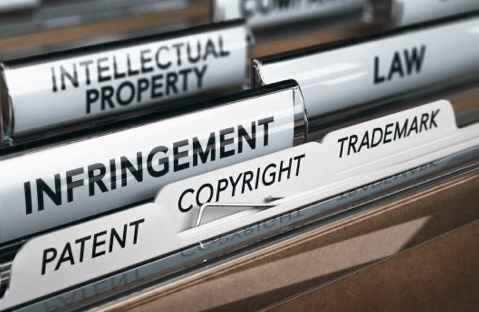The US copyright law states as soon as a creative writer puts down their pen on paper, their work is copyrighted. Copyright is based on creative authorship rather than a formal agreement with a self-publishing company or a book publisher. However, copyrighting with the US Copyright Office earns the author more benefits. Essentially, A copyright for authors is not required.
Under what circumstances should an author copyright?
Provided their work is tangible-typed, written, saved, or otherwise words committed to paper-formal registration to earn copyright right is not mandatory. Their work is still protected even without the copyright symbol.
Whether they are self-publishing or contracting with any publisher, copyrighting is beneficial. If they are working with a publishing company, they will copyright the book, manuscript, etc., in the creator’s name. Most contracts between authors and publishing companies have a clause that stipulates that the publisher acquires copyright rights in the author’s name. The publisher is responsible for acquiring the required paperwork on behalf of the author, and the copyright rights are registered as the author’s property.
On the copyright page of the book or manuscript, the author’s name follows the symbol of copyright. Registering for copyright rights grants the author higher levels of security and confidence with their manuscript protection. Registration of their manuscript with the US copyright registration office earns creators a public record of authorship. His/Her work is copyrighted from the moment their idea is put on paper. However, copyrighting should not end with writing down; it is beneficial to earn official copyright. Registration at the US copyright office means that they are recognized as the official rightful holder of the copyright in a court of law.
What is the difference between a copyright and a patent?
There are different types of rights concerning intellectual property. The recognized statutory intellectual property (IP) rights include patent, copyright, Trade Mark, and designs.
Copyright is an automatic exclusive right. It protects original works about literature, drama, art, and music. Content creators, through copyright rights, can earn from their work in addition to controlling the use. By exclusive rights, it means that both self-published authors and those whose content is published by a publishing company are granted the power to exclude anyone from using their work unless permission is granted. The main goal of copyright is to strike a balance where creative works are protected and the public can use them. Copyright rights aim at protecting the expression of ideas rather than the basic idea.
A patent, on the other hand, is a registered right. Patent rights give the content creator exclusive rights to features and processes of their inventions, either a solution to a problem or a new way of doing something. One is bound to be granted patent rights provided they disclose the technical information about the invention through a patent application to the public. In principle, they have exclusive rights to prevent anyone from exploiting the patented invention for commercial gains. Creators cannot use, distribute, import, or sell the invention commercially until granted consent.
The main difference between a patent and copyright is while copyright rights protect expression and creativity, patent rights protect physical inventions. The type of protection required hence depends on the subject intellectual property.
What are the advantages and disadvantages of copyright rights?
The US Copyright Law grants content creators such as musicians, self-published, etc., exclusive rights and protection.
Some of the advantages they enjoy as a copyright holder include:
- Automatic copyright protection. As soon as his/her creative work is published, the US copyright law is extended automatically.
- It is geared towards defending the rights of intellectual property. Copyright was introduced under US law so that the intellectual property of anyone working in the creative field is protected.
- Provided he/she is a copyright holder, they have the right to seek a court injunction that commands an infringing individual or party to discontinue and cease publishing the subject work immediately. They hence enjoy immediate action.
However, the system is far from perfect.
- His/her work is automatically copyrighted so long as there is a tangible form. If they want to seek an official registration from the US Copyright Registration office, they must pay additional fees. The cost is relatively expensive. Enforcement is also expensive. Most matters about copyright enforcement are dealt with on a civil basis rather than criminally. If he/she is a small copyright holder, affording a long-term legal representative might be difficult.
- Also, the registration process is time-consuming.
Self-published authors should leverage the advantages of copyrighting. Advantages supersede the disadvantages; hence they should not fear the cost.

